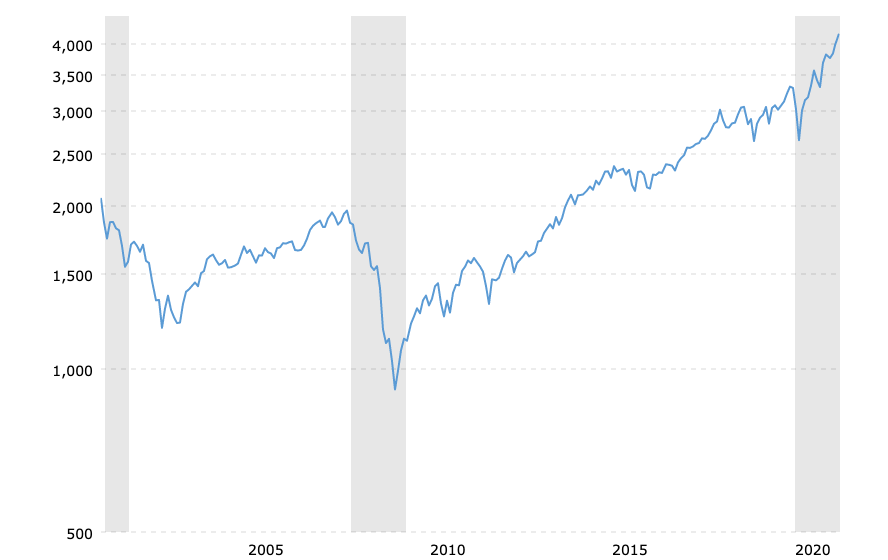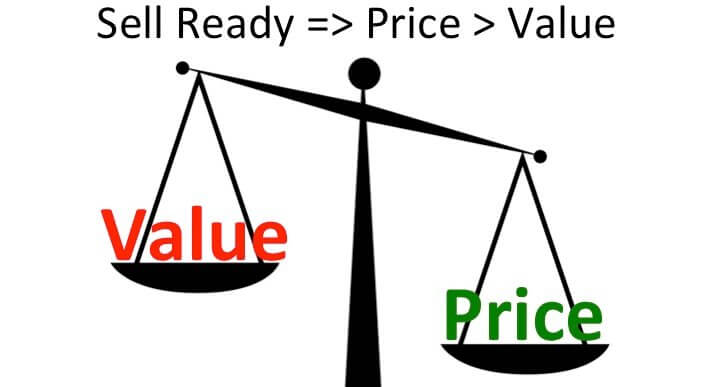Discover how understanding the limitations of averages and embracing probabilistic thinking can improve decision-making and risk management in business.

When Should I Sell My Business?
Every business owner I have ever known, has sought to sell their business at the top of the market. I think this is part of the movement where many are in a constant quest to outdo others. While conceptually I understand this desire, these owners should heed the voices of some sages.
Daniel Kahneman’, “The average investor’s return is significantly lower than the market indices due primarily to market timing.”
Warren Buffett, “Trying to time the market is a fool’s game.”
Baron Rothschild, “You can have the top 20% and the bottom 20%; I will take the 80% in the middle.”
What it takes to Sell at the Top of the Market
If you are determined to sell at the top and are ready to step aside at any time, the only concern is timing. However, if you have other timing considerations, e.g., retire when my business is worth $X, step aside when I am 65, then things are far more complicated.
For the market to be at the top when you reach some predetermine criteria, you need to ensure that the entire economy collaborates with you. To do this, I expect you would need to have the ear of:
- the President,
- the majority of Congress,
- the Chair of the Federal Reserve, the Secretary of the Treasury,
- the President of the European Central Bank,
- the German Chancellor,
- the President of France,
- the President of Russia,
- the President of the People’s Republic of China,
- the heads of the People’s Bank of China, and
- the leaders of all the leading investment banks and hedge funds worldwide, to name a few.
Not only would you need their ear, but you would have to persuade them that collaborating with you is in their best interests as well. Furthermore, many of these people would want something in return for a favor, and most of the people I have spoken with would be able to afford the price Vladimir Putin would expect. Finally, I have found any scheme where only one person knows of it but requires many people to ensure its success is bound to fail.
As a result, I would say that trying to sell at the top is a fool’s errand and one that should be abandoned.
A Contrarian View
Some have argued that selling at the bottom of the market makes more sense. The rationale is that the business owner will reinvest those assets into other assets whenever they sell their company. Thus if you want to ensure continued wealth accumulation, one should do it at the bottom of the market rather than the top.
To examine this theory, I did a simple analysis. I reviewed four dates and the market conditions. I looked at the Russell 2000 Price Earnings Ratio for those dates and indexed them with the 2000 Price Earnings Ration as the base = 100. Assuming that enterprise value (EV) to EBITDA ratios followed the Russell 2000’s PER, the EV/EBITDA ratio in 2000 was 5x, and the company had an EBITDA of $1 million in each year before the sale, the results are as follows:
| Date | Market Conditions | Russell 2000 PER (Indexed) | EV / EBITDA Multiple | Proceeds ($k) |
| 12/31/2000 | After the Top of the market | 100.0 | 5.0 | $5,000 |
| 12/31/2005 | Near the top of the market | 58.6 | 2.9 | $2,929 |
| 12/31/2010 | Emerging from a recession | 52.6 | 2.6 | $2,631 |
| 12/31/2015 | Middle of a bull market | 74.7 | 3.7 | $3,734 |
I then made a few more simple assumptions:
- Transaction costs to be 30% comprising intermediary and legal fees of 10% and taxes of 20%.
- The proceeds are invested in two funds, VFIAX – Vanguard 500 Index Fund Admiral Shares and VBMFX – Vanguard Total Bond Market Index Fund Investor Shares as proxies for a general stock and bond market investment.
- The allocation is 70% into VFIAX and 30% into VBMFX.
- Any funds withdrawn and any distributions are ignored as they would be the same for both funds.
Below is a chart of the S&P 500 from December 31, 2000, to December 31, 2020 to show the market’s performance over the period.

Source: Yahoo Finance
Following the investments as described above after five, ten and fifteen years the returns were:
| Date | Initial Value ($k) | After 5 yrs ($k) | Return (%) | After 10 yrs ($k) | Return (%) | After 15 years ($k) | Return (%) |
| 12/31/2000 | 5,000 | 4,822 | -3.6 | 4,930 | -1.4 | 7,027 | 40.5 |
| 12/31/2005 | 2,929 | 2,993 | 2.2 | 4,292 | 46.5 | 5,414 | 84.8 |
| 12/31/2010 | 2,631 | 3,790 | 44.0 | 4,786 | 81.9 | ||
| 12/31/2015 | 3,734 | 4,643 | 24.3 |
So as it can be seen, while selling at the top, provided the greatest wealth after fifteen years, interesting the difference over 10 years was less than 3% between selling at the top and selling just after the bottom. The other points are somewhere in between. Therefore, selling at the top is not the conclusive answer we expected.
So what to do?
What I have always advised clients is to build a business that is attractive to buyers and can be sold. The key is to create your own redundancy, so that you can sell it, stay in a non-executive capacity and effectively “coupon clip,” or pass it on to your children or employees. You have many options and if someone comes along and offers you “silly” money, take it. But don’t worry about the “Top of the Market.”
If you want to know if your business is sellable, complete this questionnaire, and if you want help building a sellable business, contact me.
Copyright (c) 2021, Marc A. Borrelli
Recent Posts
The “Flaw of Averages” Causes Havoc for Businesses
What is Your Strategy, In a Sentence?
If you are banking on the vaccine returning us all to “normal” quite quickly, in the famous words of Dr. Akande, “Hope is not a strategy.” Your organization should be preparing a well-defined strategy for 2021 and beyond. Once you have this strategy, the ultimate question: can you clearly articulate it in one sentence? Distilling your strategy into a single sentence is a powerful tool, both for your legacy and your team effectiveness. Not sure where to start? I offer a plug-in formula to set up your strategy sentence.
Character Matters
“It’s easier to hold to your principles 100% of the time than it is to hold to them 98% of the time.” — Clayton Christiansen. I have often written about the importance of a company’s Core Values. That’s because no matter what words you may have chosen as values, your organization’s Core Values are on display in how leadership and employees actually behave. As I’ve said before, how you have acted in the last twelve months will define your career for the next decade. Your character, and your company’s character, matters.
New Year’s Resolutions, Once More Unto the Breach
The holidays have been even quieter than normal, which has given me plenty of time to reflect on my New Year’s resolutions. Looking at 2021, I decided to use a completely new approach to lay out my goals. The result of my new approach? A highly-detailed, accountable, actually achievable plan for the next year (I think). Wondering what this process looks like?
To Vaccinate or Not to Vaccinate, that is the Question
What do your employees, peers, and leadership team think of the COVID-19 vaccine? Will you require the vaccine, or will you let employees make individual decisions? As a leader, you need to steer the discussion about vaccines in your organization with your Core Values in mind. No matter what strategy your organization takes, the most important factor is going to be how you communicate your decision.
3 Ways You Could be Undermining Your Core Values
Can you answer “Why does your organization exist? What are your core values?” Great. Now, would your latest entry-level employee give a similar answer? How about someone who has been at your company for a year? Your core values give your organization a guiding mission. Many organizations pay this idea lip service, but their true commitment to their core values was tested this year. As we close out 2020, there’s no better time to examine how your organization is approaching your core values.
Are You Prepared for 2021 With Enough Cash?
Companies don’t go bankrupt because they lose money; rather, they run out of cash. Where are we, heading into 2021? First, you can expect your cash to get tighter as we weather the current economic slowdown. Then, with a vaccine on the horizon, you will need to be positioned for growth. If you don’t have the cash you need, have you looked at how you can generate the cash internally? More on how to improve your cash conversion cycle…
Tony Hsieh, a Corporate Culture Icon, RIP
In his work as Zappos CEO and elsewhere, Tony Hsieh believed, and proved, that culture is the most important thing in an organization. According to Hsieh, if you get the culture right, the rest will take of itself. How did Zappos do it? You can take a look at everything from the company’s interview questions, to “The Offer” to leave a position as a new hire. Hsieh believed that a company’s brand is just a reflection of the culture, and his legacy is felt across so many industries.
CEO, Try Thy Hiring System
How does your company hire? I’ve seen the good, the bad, and the surprisingly ugly hiring processes in my career. From the HR email mix-ups to the interviewer watching the World Series while I responded to his questions, I’ve learned that you can tell a lot about an organization simply by examining the hiring experience. Are you chasing away the kind of people you need at your company?
What is Leadership?
What is it, exactly, that great leaders do? There are plenty of overused adages about “leadership” in business. It’s worth examining the tropes around leadership, plus the traits of the leaders who actually leave a mark. Great leaders are forged through adversity, and they leave a legacy. What does that look like in your organization?











